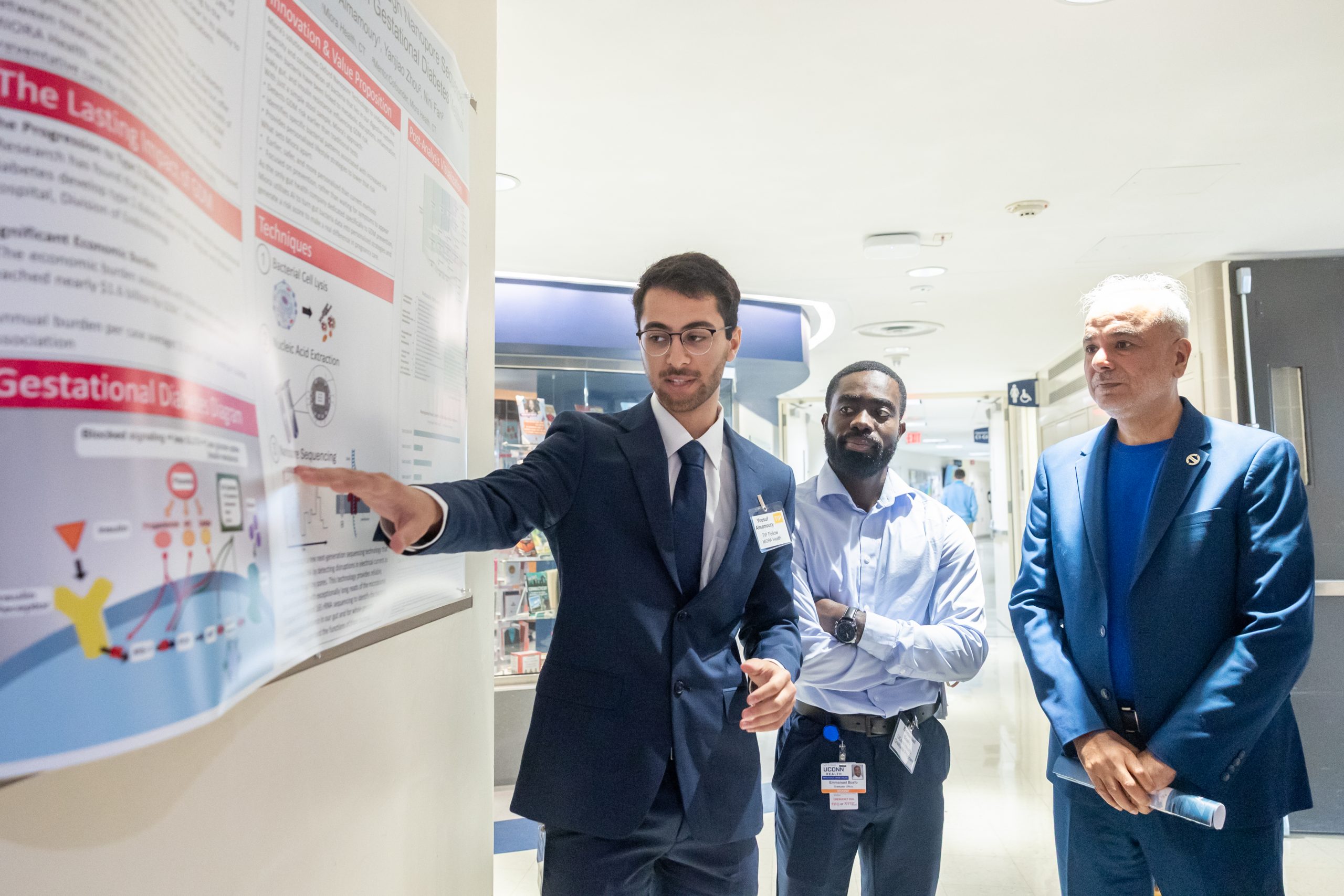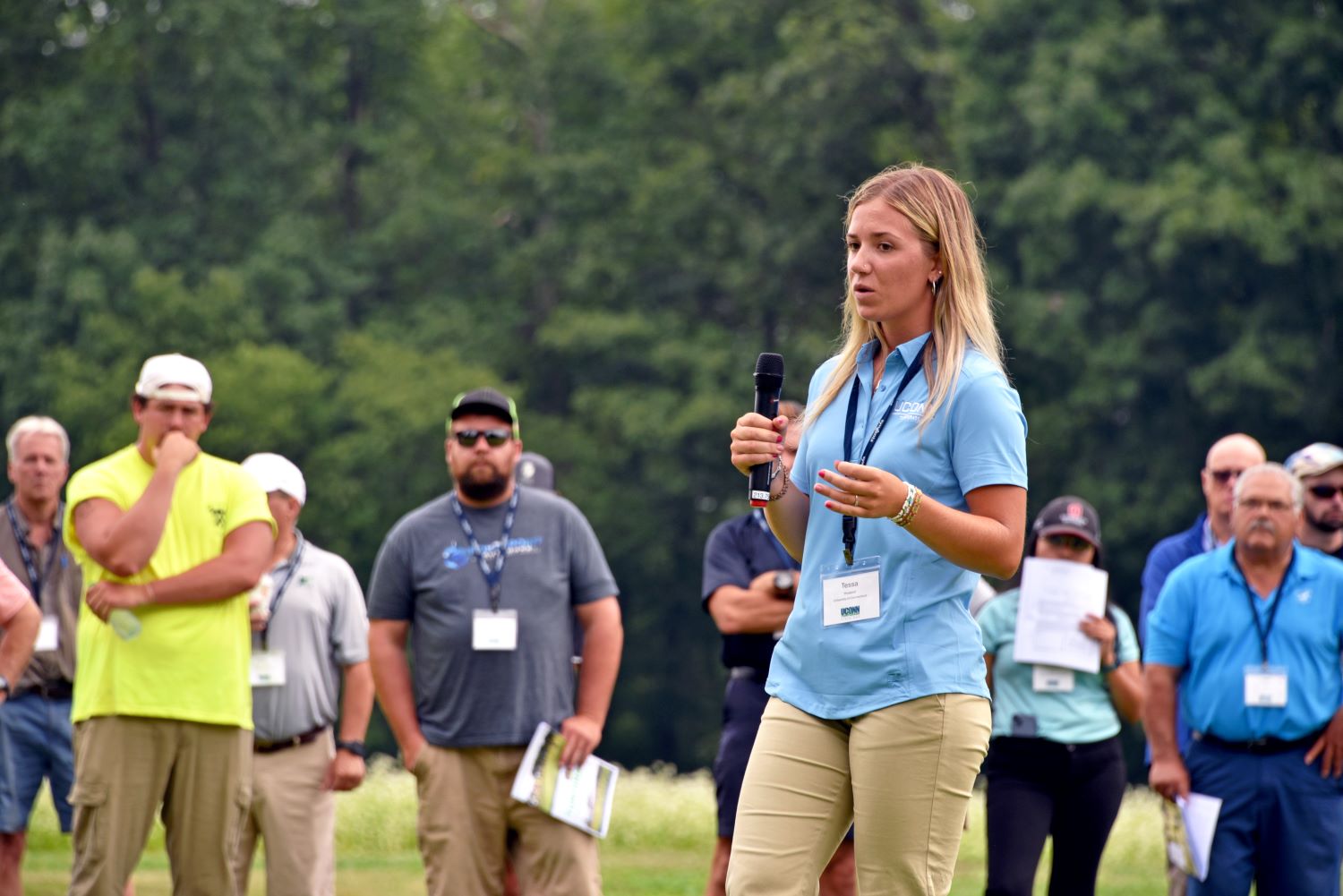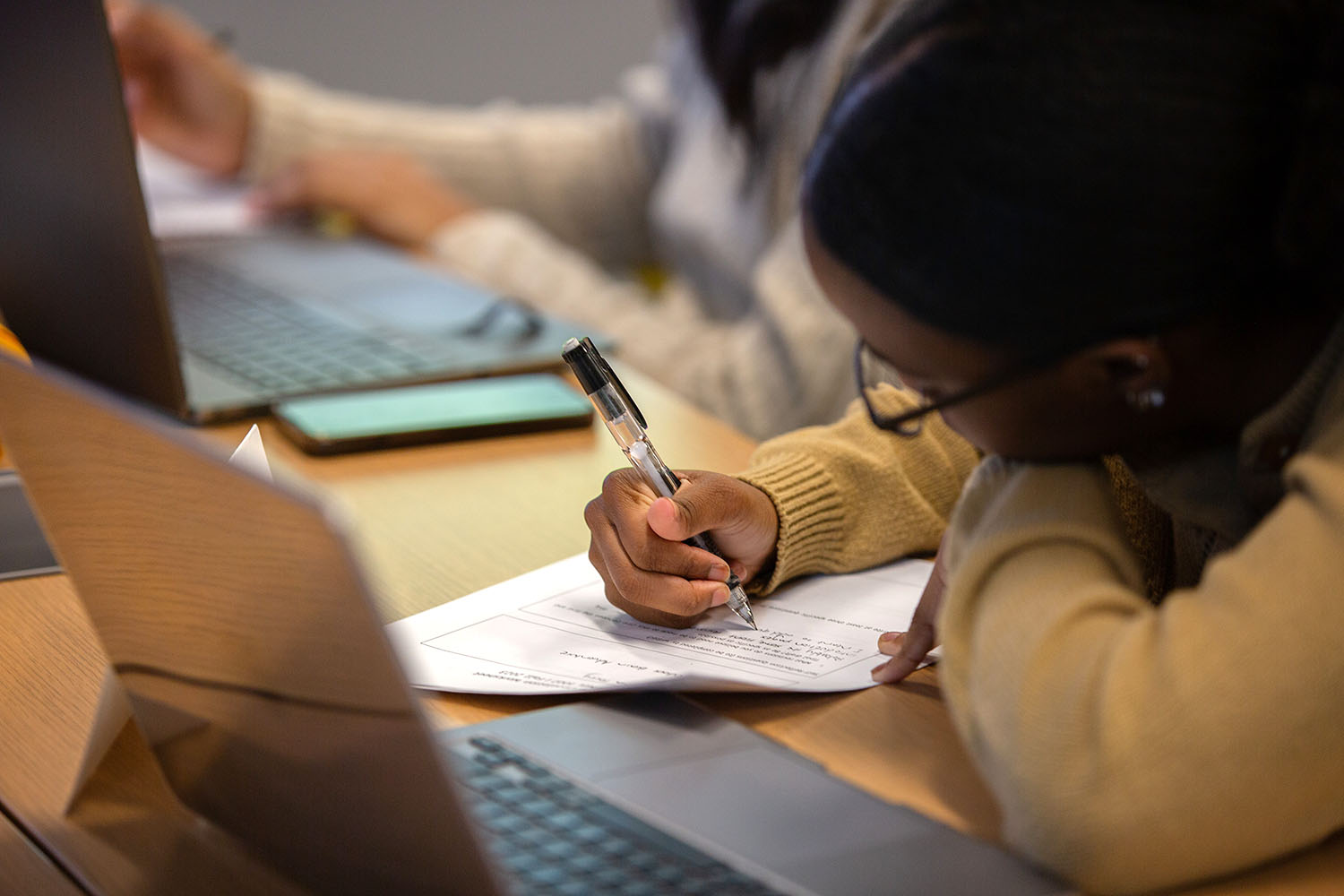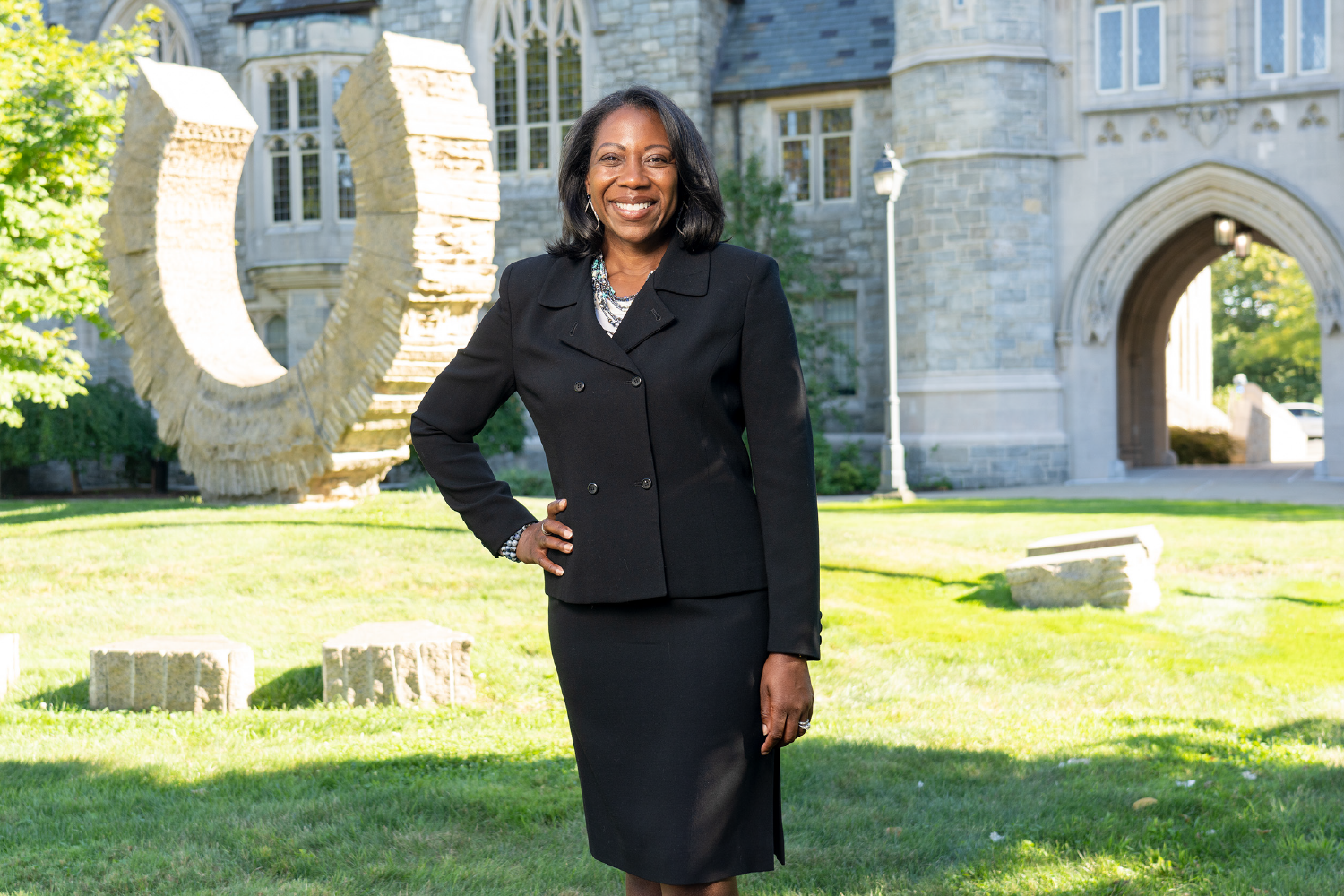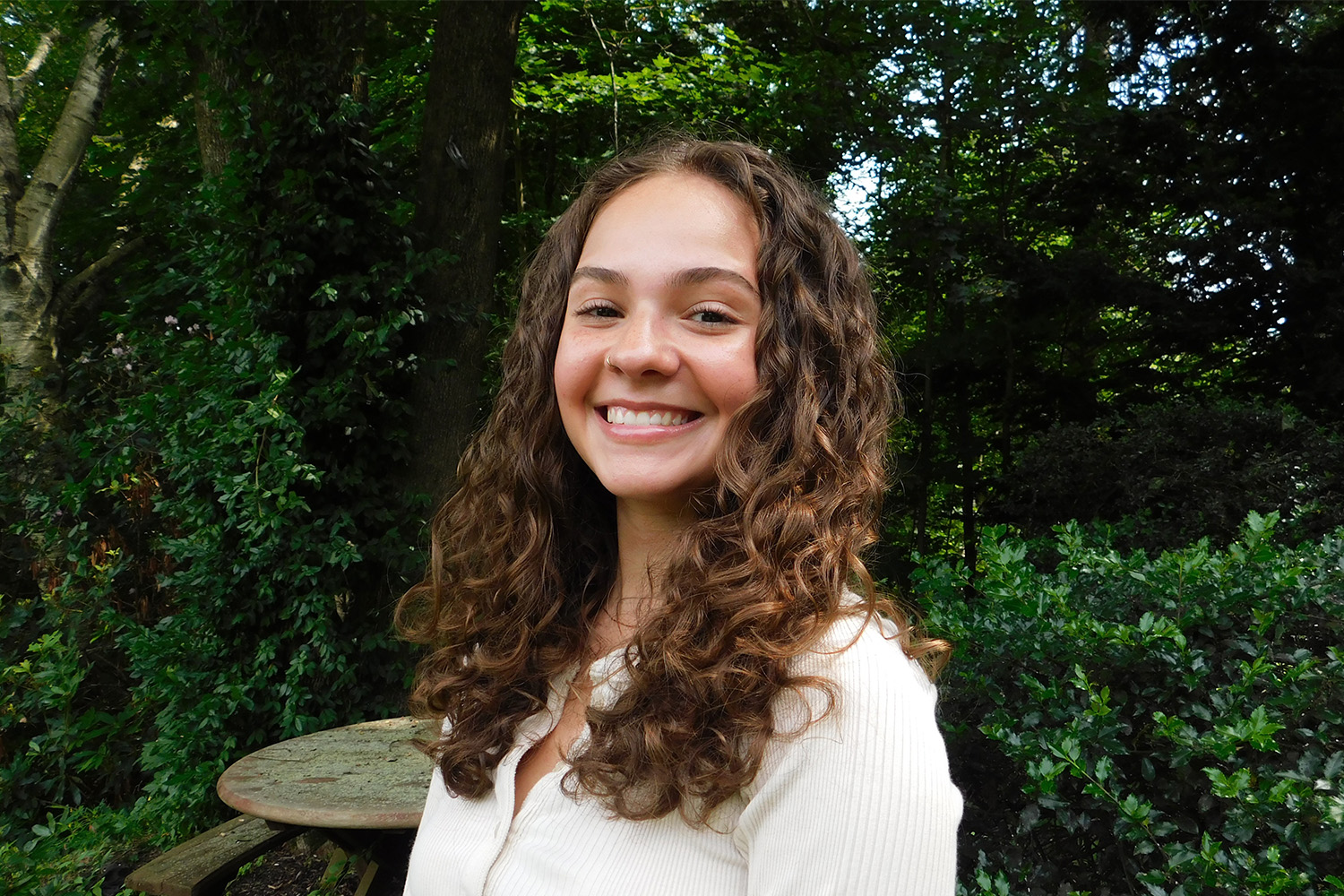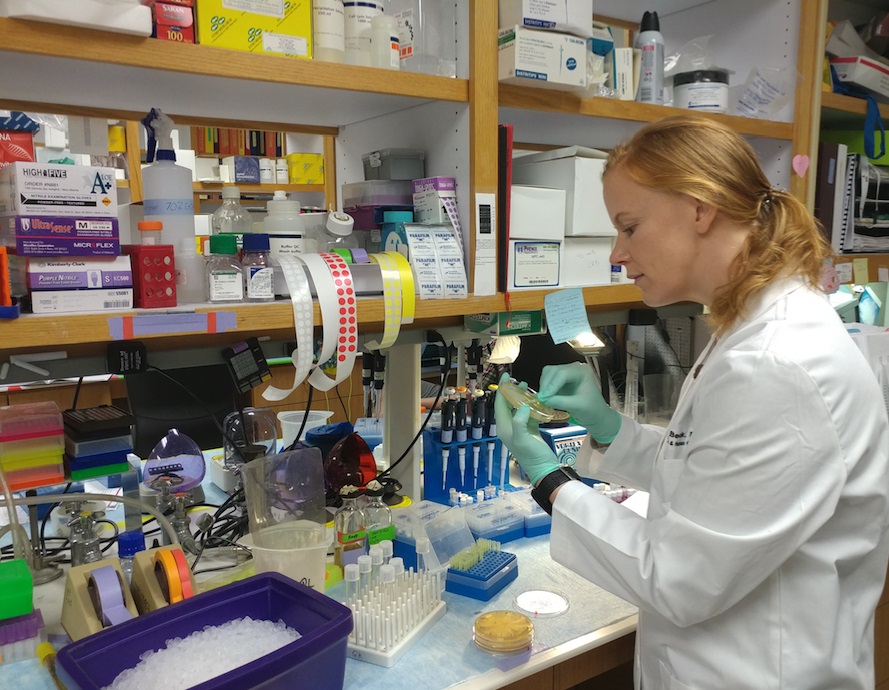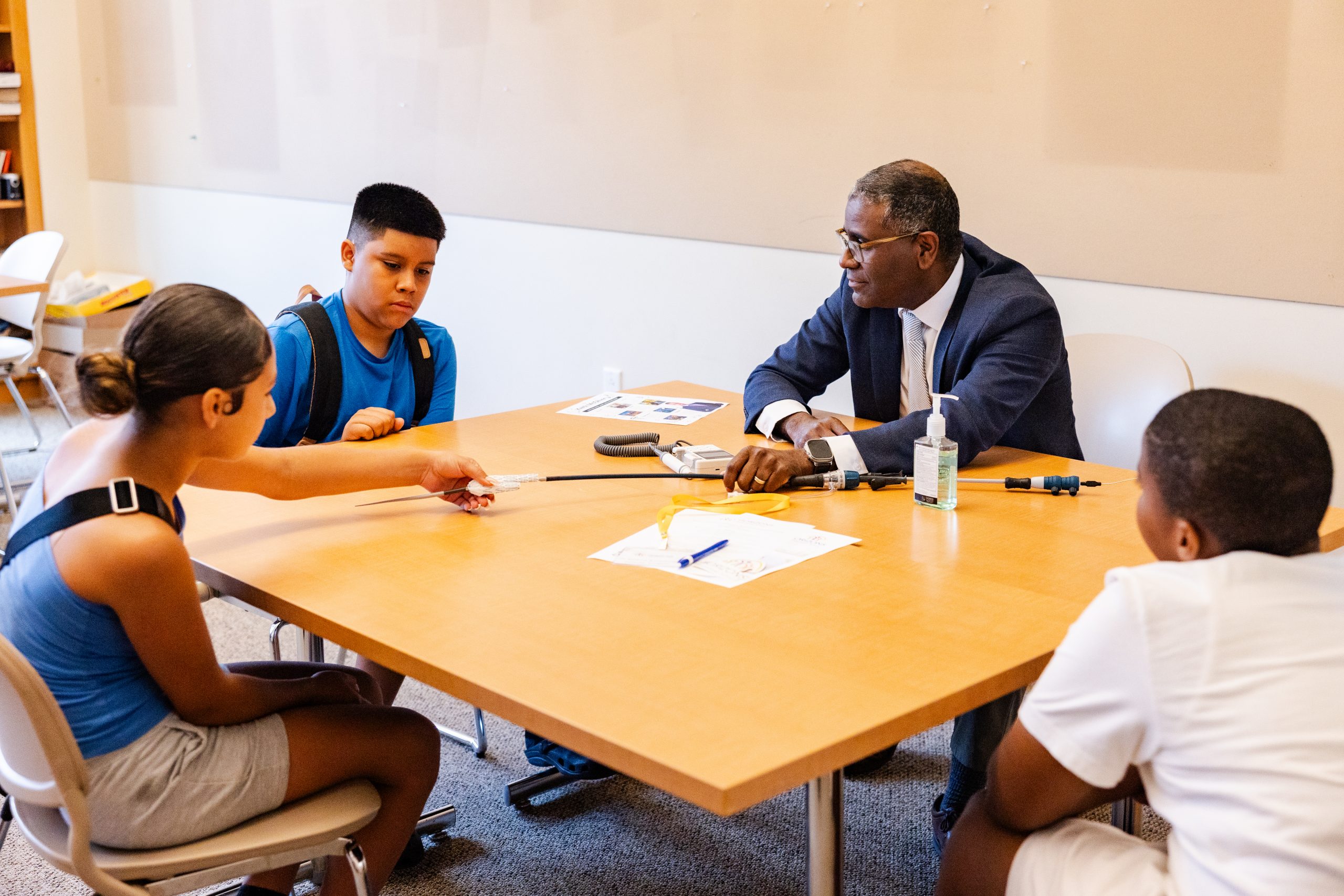Innovation, Research, and Entrepreneurship on Display in Farmington
Biometric smart clothing, a microneedle bandage to prevent MRSA growth, rapid at home detection for Lyme disease, and measuring quality in Medicaid-certified nursing homes were just a handful of projects covered by UConn students who have spent the summer working alongside startup companies and faculty mentors.
The students—who participated in the Technology Incubation Program (TIP) Innovation Fellowship and Health Research Program—spent the past 10 weeks immersed in the world of research, innovation, and entrepreneurship.
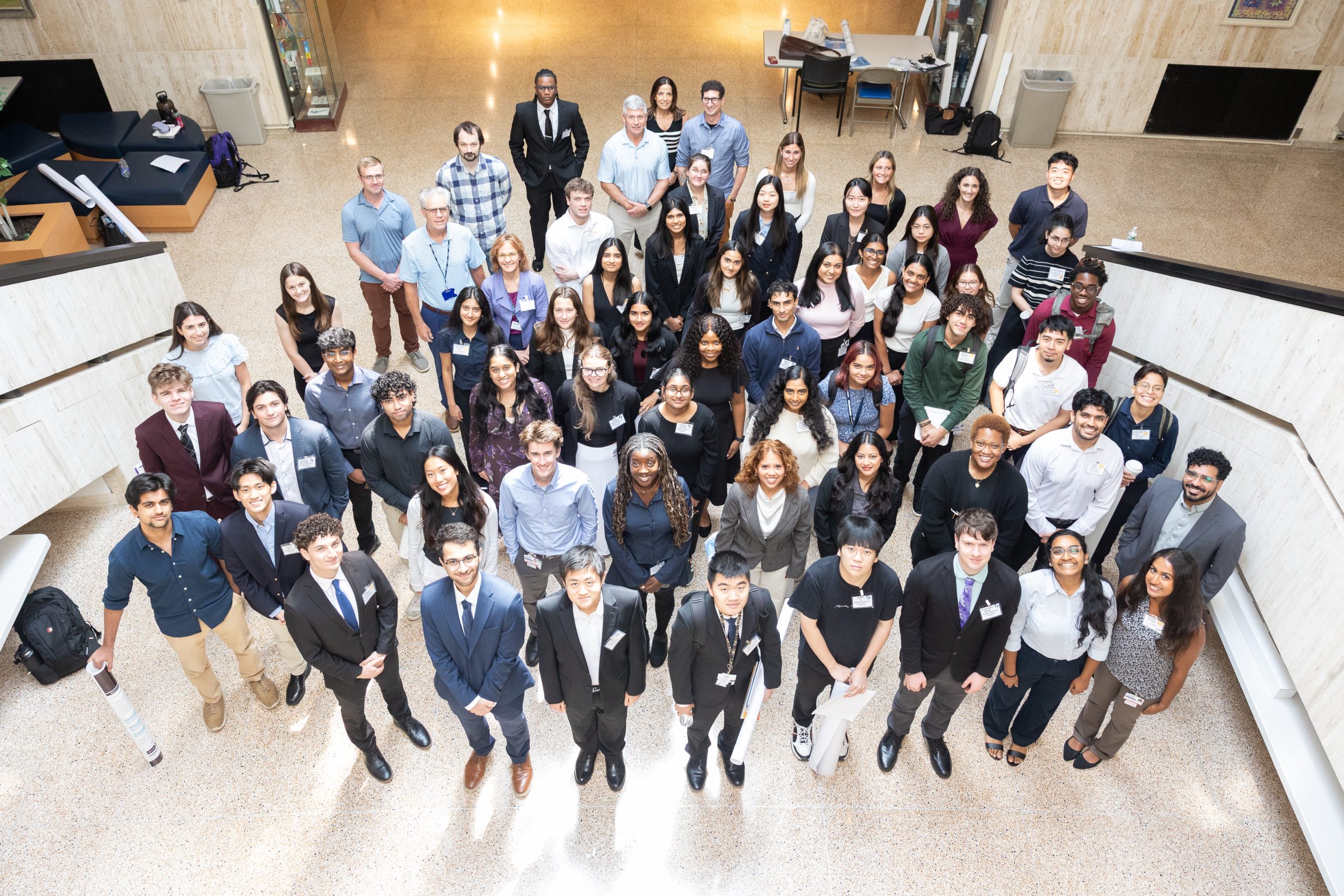
This year, there were 20 TIP Innovation Fellows and 37 Health Research Program participants.
The students’ accomplishments were celebrated alongside their mentors and state legislators at this year’s Summer Research Day at the UConn Health campus in Farmington.
“It is an exciting day, a culmination of all of your work this summer, all of the knowledge, motivation and inspiration,” said Dr. Caroline Dealy, director of the TIP Innovations Fellows Program and associate professor at the UConn Schools of Dental Medicine and Medicine.
In her remarks, Dealy elaborated on the unique collaboration between the two programs, calling them a “natural partnership” as most of the activity is based at UConn Health and the TIP Incubator in Farmington.
Commending TIP mentors in the audience, Dealy continued, “Start-up companies don’t necessarily have the same obligations to pass on academic knowledge. They’ve got goals to move a service or a product in biomedical or engineering sciences to translations that have a practical benefit. Yet, mentors from startup companies are thrilled and have been wonderful over the years in providing the support and the guidance for the students, opening this whole world of entrepreneurship and technology development—which is something quite different than what you can experience in the academic lab.”
Micah Heumann, director of the Health Research Program and director of the Office of Undergraduate Research at UConn, echoed similar sentiments about the faculty mentors in the Health research program: “Every year, I put a call out for faculty to offer an opportunity to mentor undergraduate students, knowing that they’re going to have to train them, get them caught up, get them on board, and get them helping with the research, and consistently, we’ve had a number of mentors—around 40 UConn Health faculty mentors— say that they wanted to take students.”
Heumann continued, “The commitment of faculty is above and beyond, because again, they don’t have to do this. They don’t have to offer these opportunities. But they do because they care about student success. And that’s what we’re here for. We want to see you succeed. We want to give you opportunities, because we know experiential learning is one of those major, major goals about success in undergraduate education.”
Dealy co-hosts the Summer Research Day with Heumann.
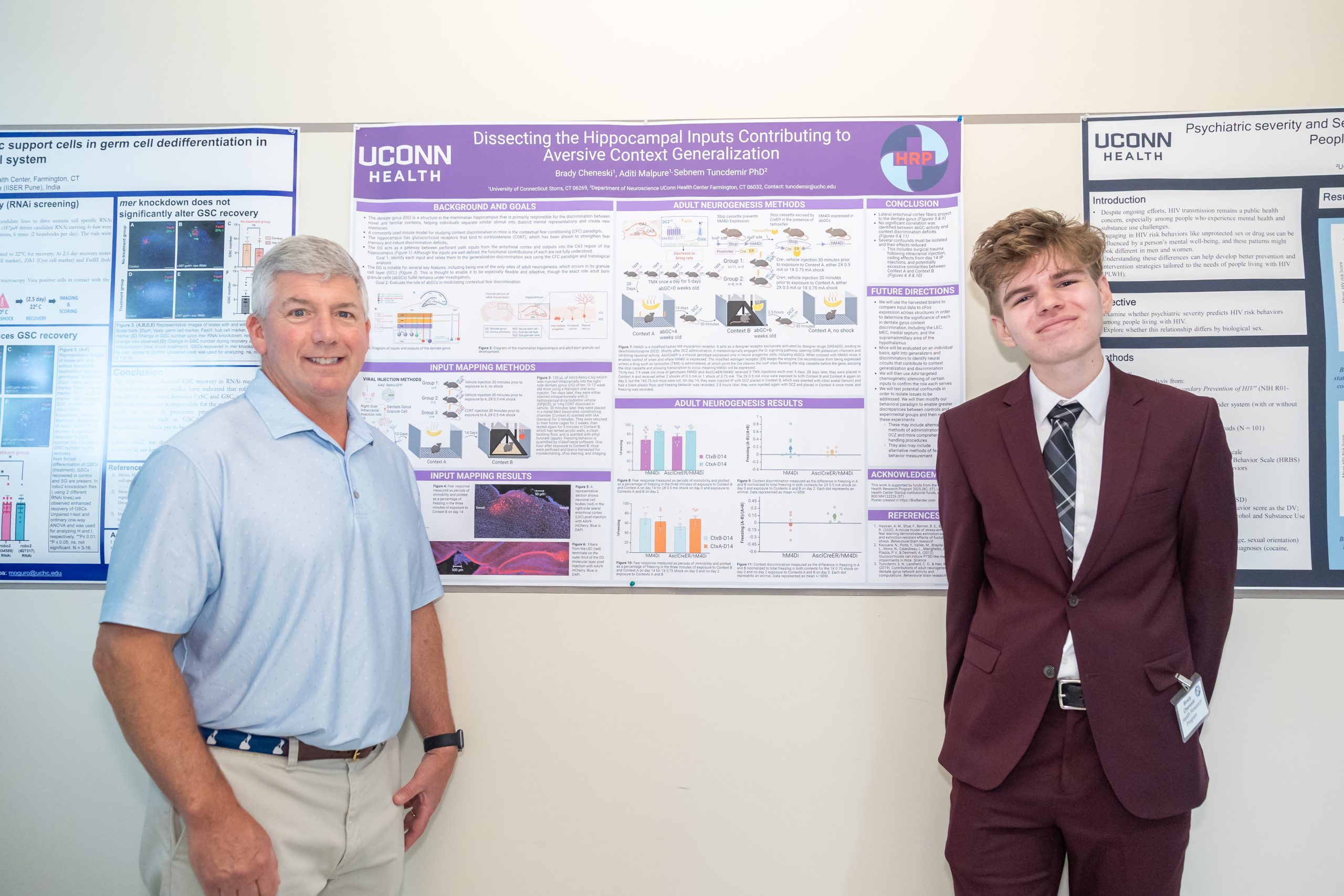
The UConn TIP Innovation Fellowship pairs UConn students with University startup companies in UConn’s TIP incubator for mentored summer research fellowships in business or STEM areas. This year, 22 TIP companies participated as mentors.
The Health Research Program connects students with UConn Health researchers to advance undergraduate research for students with interests in health and the biomedical sciences. There were 40 faculty members who served as mentors this summer.
Dr. Eric Bernstein, associate dean for academic affairs at the UConn School of Dental Medicine, offered a few remarks and congratulated the group.
“I looked over today’s presentations and I was really struck by how you all are tackling some of the most pressing challenges in health care today,” Bernstein said. “You’re working across disciplines, and it shows that health care innovation requires these kinds of interdisciplinary approaches in order to make those innovations. What excites me the most is seeing how you’re not just conducting research, but you’re thinking like entrepreneurs.”
The Summer Research Day entails several short talk sessions and poster presentations from the student researchers, giving them the opportunity to show off their hard work.
Ondrea Kerr ’25 (CLAS), a student in the Professional Science Master’s Program in Applied Genomics; Hubert Sliwka ’25 (ENG), a student in the Master of Science in Mechanical Engineering program; and Adeline Richard ’26 (ENG), majoring in Biomedical Engineering, worked with cancer solution startup Encapsulate on optimizing cancer therapy and drug delivery.
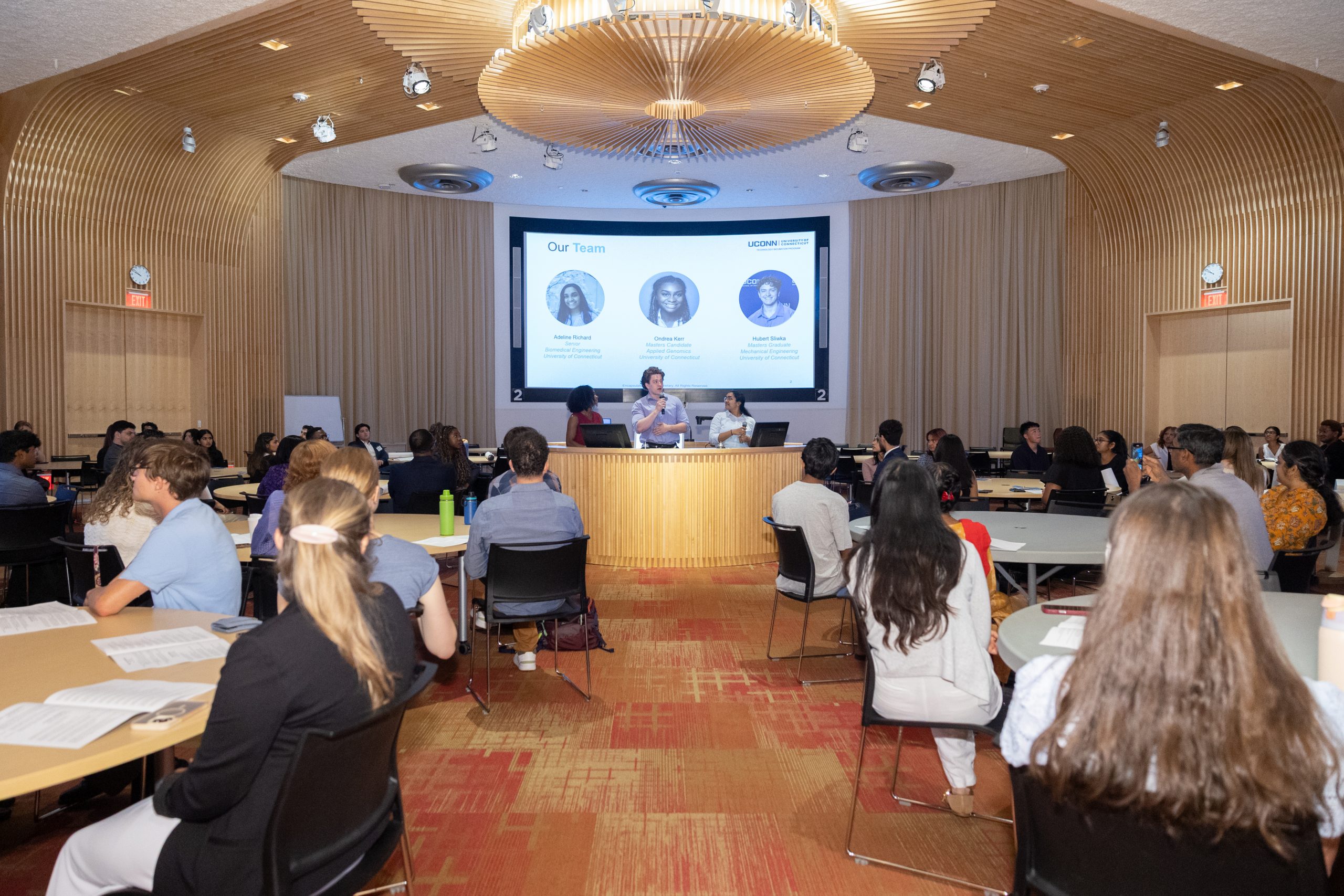
After their presentation, the students shared their reflections on the program, their time at Encapsulate, and their entrepreneurial journeys.
“When I came into college, I never thought entrepreneurship was something for me,” said Richard. “I was on a team of students, had to come up with an idea to the point where we were pitching it to get seeded—and that was like—wow, I can make something brand new. And then I had the opportunity to do TIP.”
“A lot of it boils down to utilizing my skills in a new setting,” said Sliwka. “I have done previously a lot of science work, a lot of modeling and 3D printing, but never with these sorts of tolerances. I had a lot of these skills already, but I had to apply them in a different context.”
“I’ve been getting to work closely with really awesome scientists, who further developed my skills and ask us challenging questions,” said Kerr. “Also, just getting to see how a biotech company runs—I think that’s what is unique about the TIP program, getting that industry experience while you’re still a student.”
Wenhui Yan ’25 Pharm.D., worked with Single Time Microneedles, presented on the startup’s single-use microneedle technology. Yan reported that the formulation she developed during her research will be sold as samples and is going to large-scale production with a contract manufacturer in August.
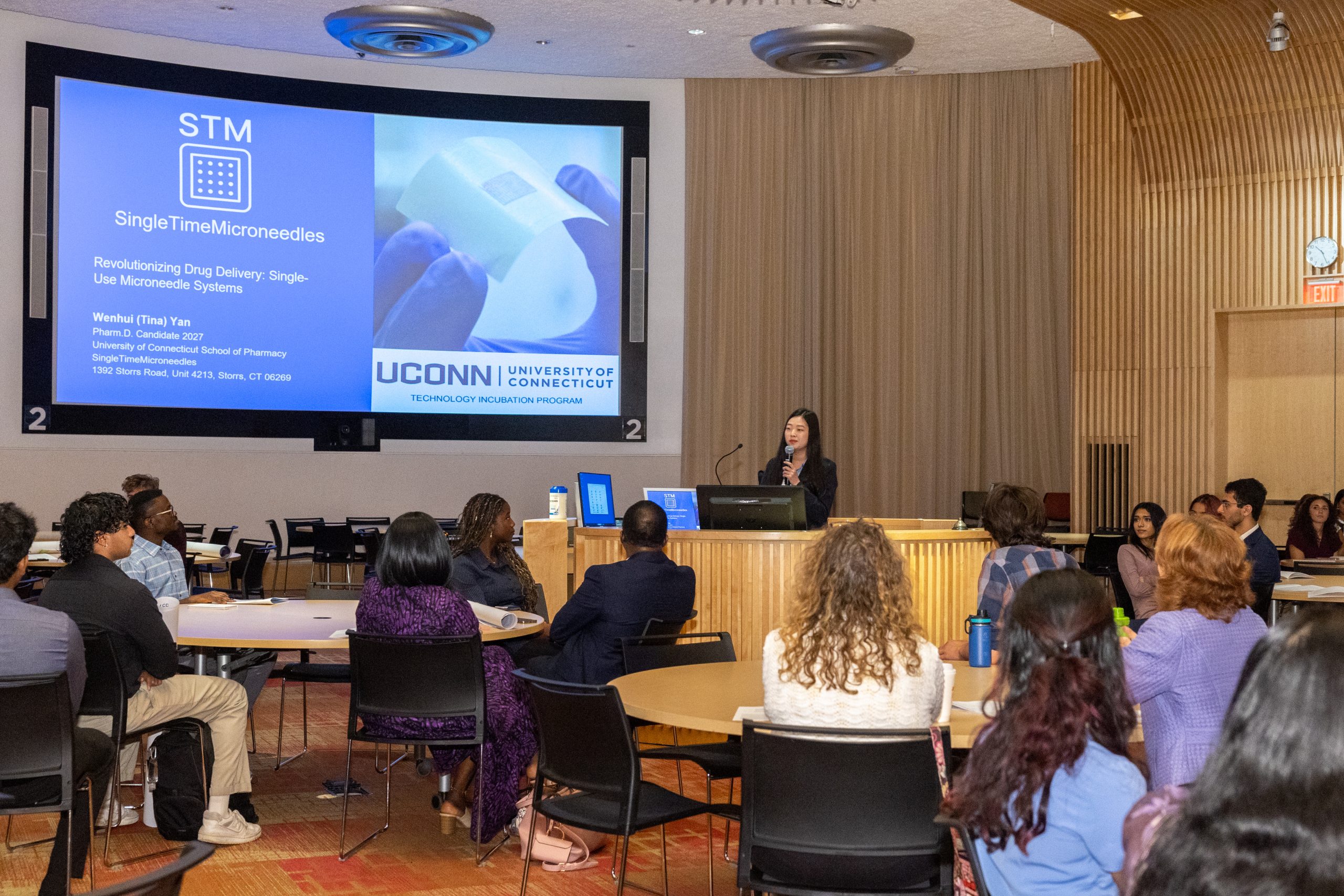
“Being a part of this program has really allowed me to see how entrepreneurship and research intersect in the real world,” said Yan. “Being able to have hands on experience on that is just an incredible experience.”
State legislators also joined to celebrate the students, learn about their summer projects, and introduce themselves to students who live in their districts.
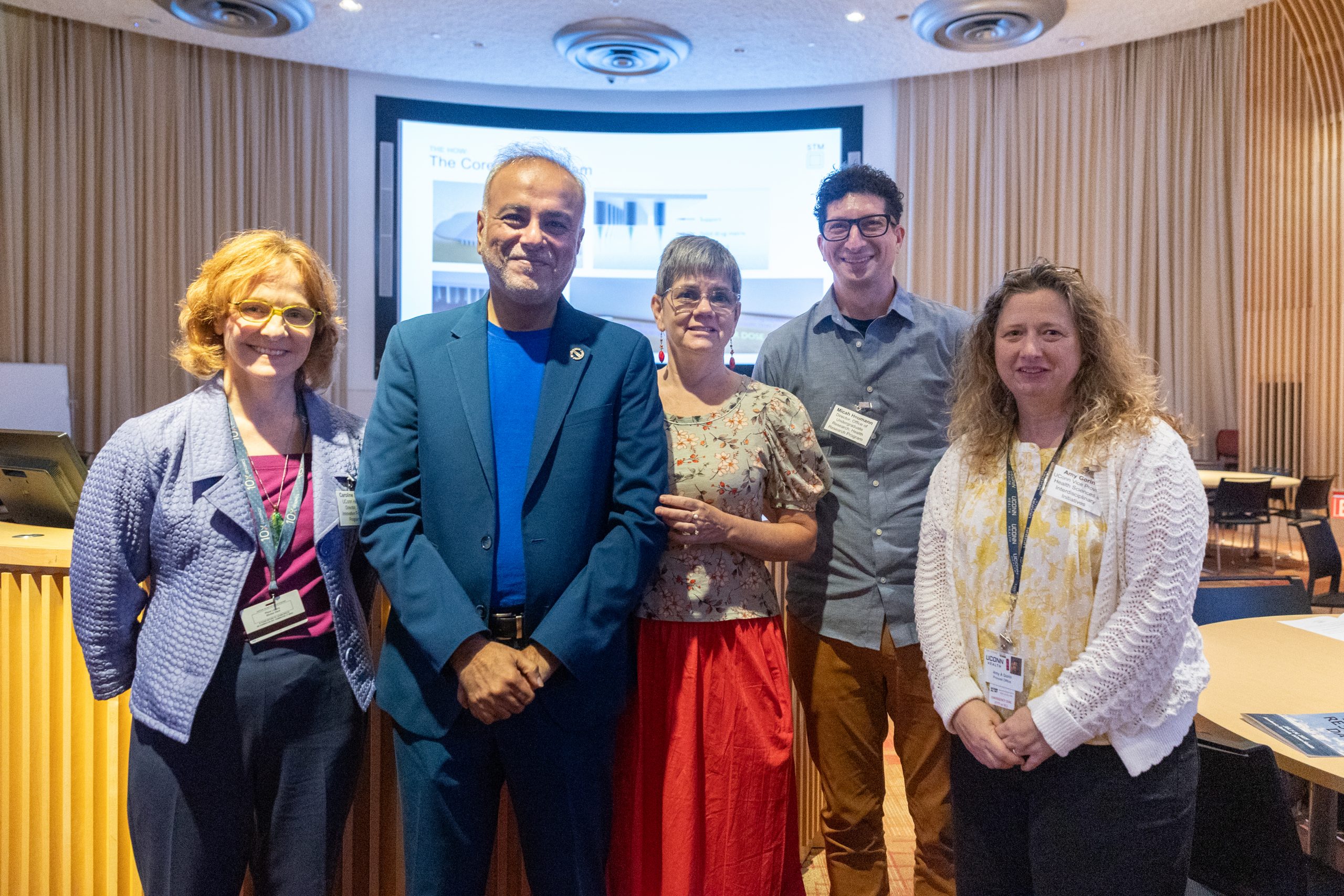
State Senator Saud Anwar, State Representative Patrick Callahan, State Representative Anne Hughes, and State Representative Gregory Haddad ’89 (CLAS) were in attendance.
“As I was watching this amazing research and innovation, it felt like being a policy student in my seventh year,” said Hughes. “I’m also a social worker—a geriatric social worker—and I am very excited to see some innovations on Medicaid and nursing homes.”
“We need a lot of innovation and a lot of research to make Connecticut and UConn the flagship of health, and be a model to other states,” Hughes continued. “I’m so excited and honored to be here, and we need to learn from you as policymakers.”
Representative Callahan, whose nephew Brady Cheneski participated in the Health Research Program, said “There’s a lot of things we need research for, and knowing that there are smart people like you working on it behind the scenes makes me feel better because there are people out there who are here to help solve problems.”
“The research being conducted by undergraduate and graduate students is truly impressive and covers a board range of fascinating subject matter,” said Haddad. “I heard from students designing and improving wearable technology to monitor biometric data and improve athletic performance, and from another set of students working to improve the ways we sterilize medical equipment. Not only are these students contributing real research, they are also gaining invaluable experience that provides them with greater opportunities once they achieved their goals at UConn.”
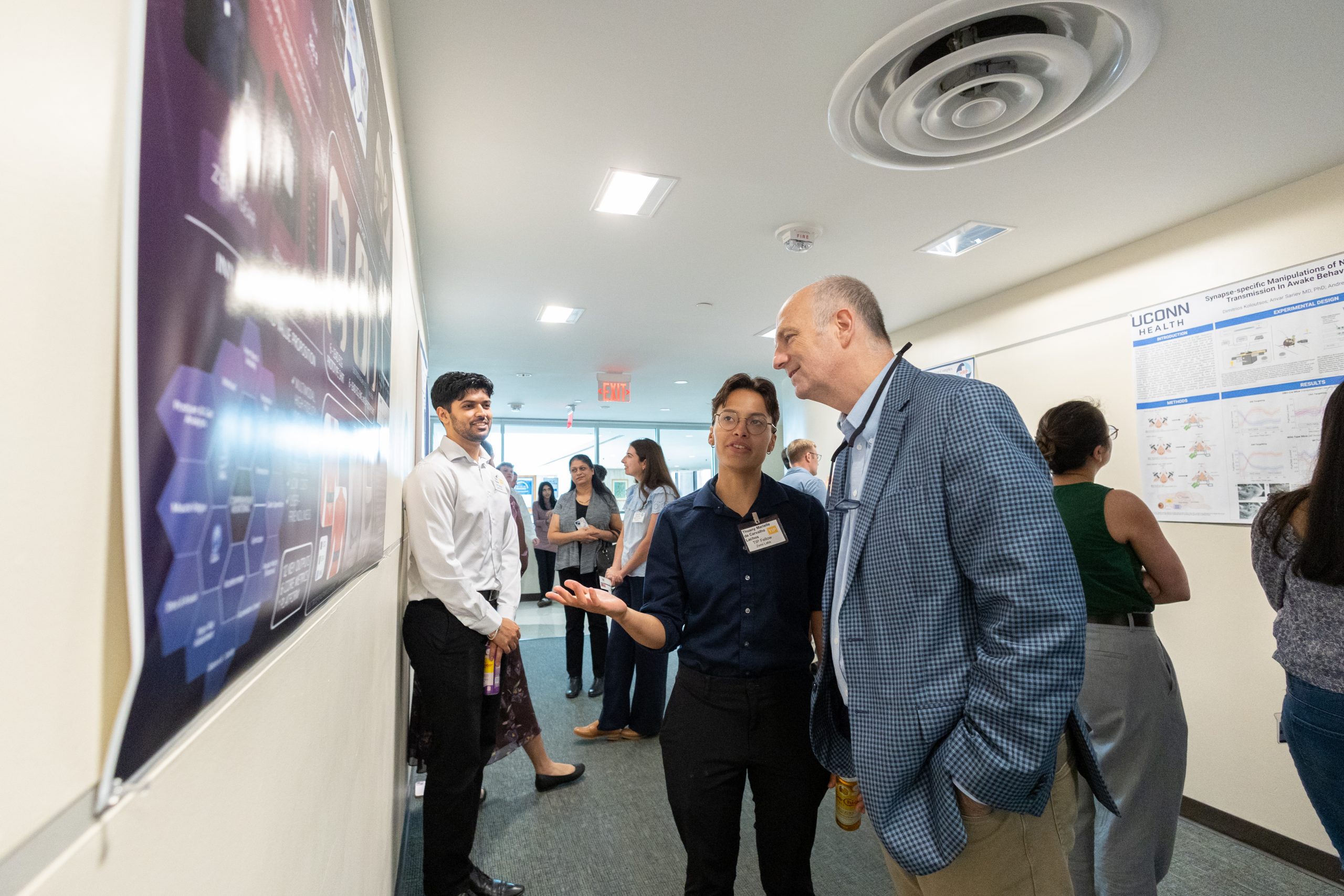
“This is a special moment,” said Anwar. “Every time I come over here, and I listen to your ideas and thoughts, it’s very inspiring because you are actually dedicated to science and technology and trying to answer questions, or even raising questions that we are not necessarily addressing.”
“We’re living in a very challenging time,” Anwar continued. “Grants are being stopped, and rather than being celebrated, your opportunity is being squeezed. There is literally a war against science—an organized effort to stop any progress on answering questions.
“We don’t want to restrict innovation; we want to enhance it.”
Latest UConn Today
- UConn Research Shows Autonomous Mowers Make the CutFrom cut quality to fertilizer use, autonomous mowers offer an improved approach to lawncare
- Economist Reimagines Writing Courses in the Age of AIProfessor Metin Coşgel is piloting a new AI-integrated writing curriculum in economics, one of UConn’s largest majors, with the potential to shape how writing is taught across disciplines.
- Eboni S. Nelson Reappointed Dean of the UConn School of LawProvost Anne D’Alleva praised Dean Nelson’s leadership, under which UConn Law has seen student success and an enhanced scholarly profile
- Prison-Banned Books Inspire Examination of Education while Incarcerated for Ambitious UConn Undergrad'One thing that attracts me to a career in academia is the connection with students and student organizing that has been a huge part of activism in American history'
- The Most Complete View of the Human Genome Yet Sets New Standard For Use In Precision MedicineNew collaborative research by UConn Health and The Jackson Laboratory decodes the most elusive, difficult-to-sequence regions of the genome from populations around the world
- Career Day Inspires Connecticut YouthChief Vascular Surgeon of UConn Health introduces Hartford middle schoolers to careers in medicine at Horizons at Westminster School



